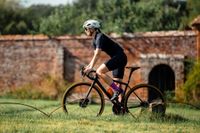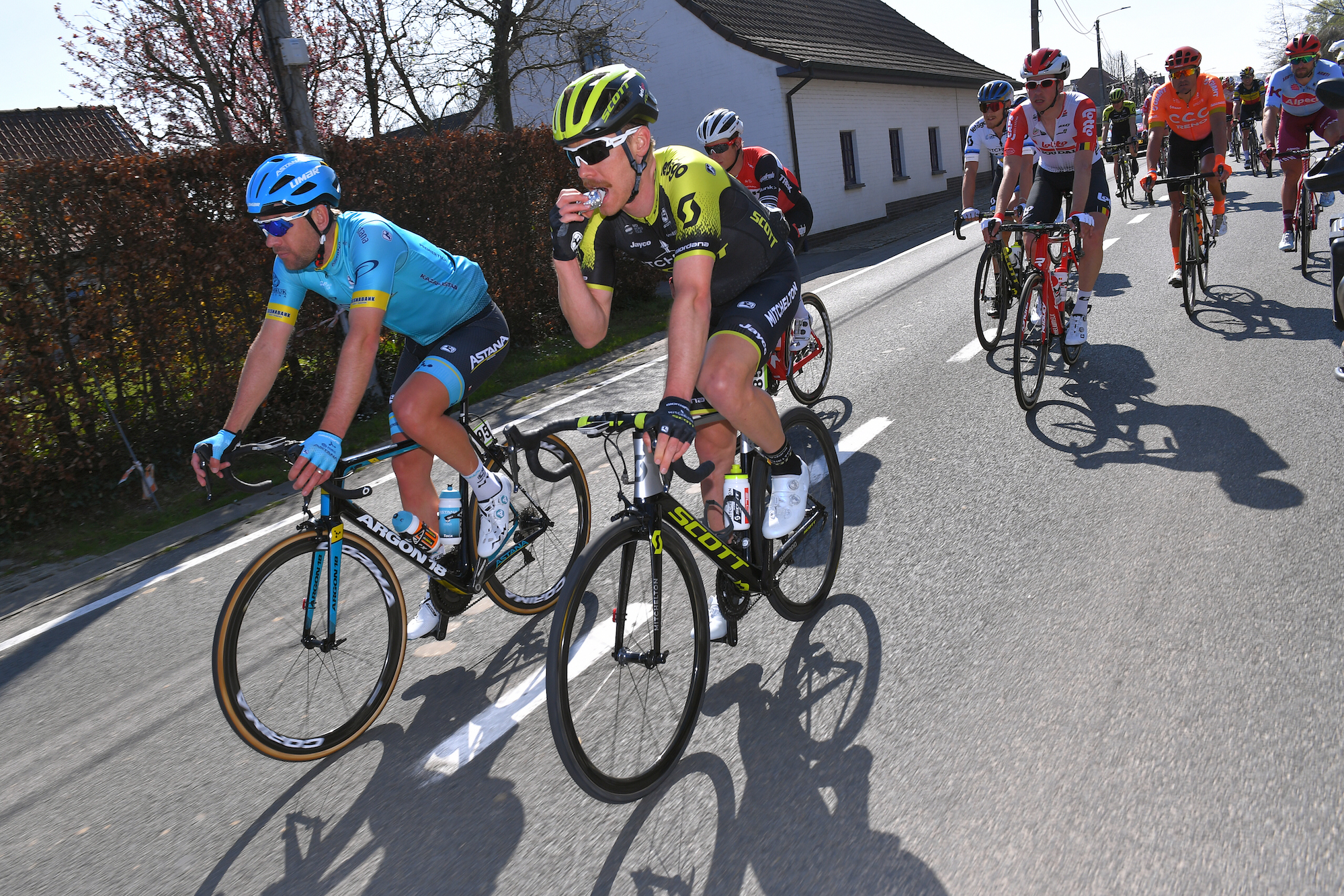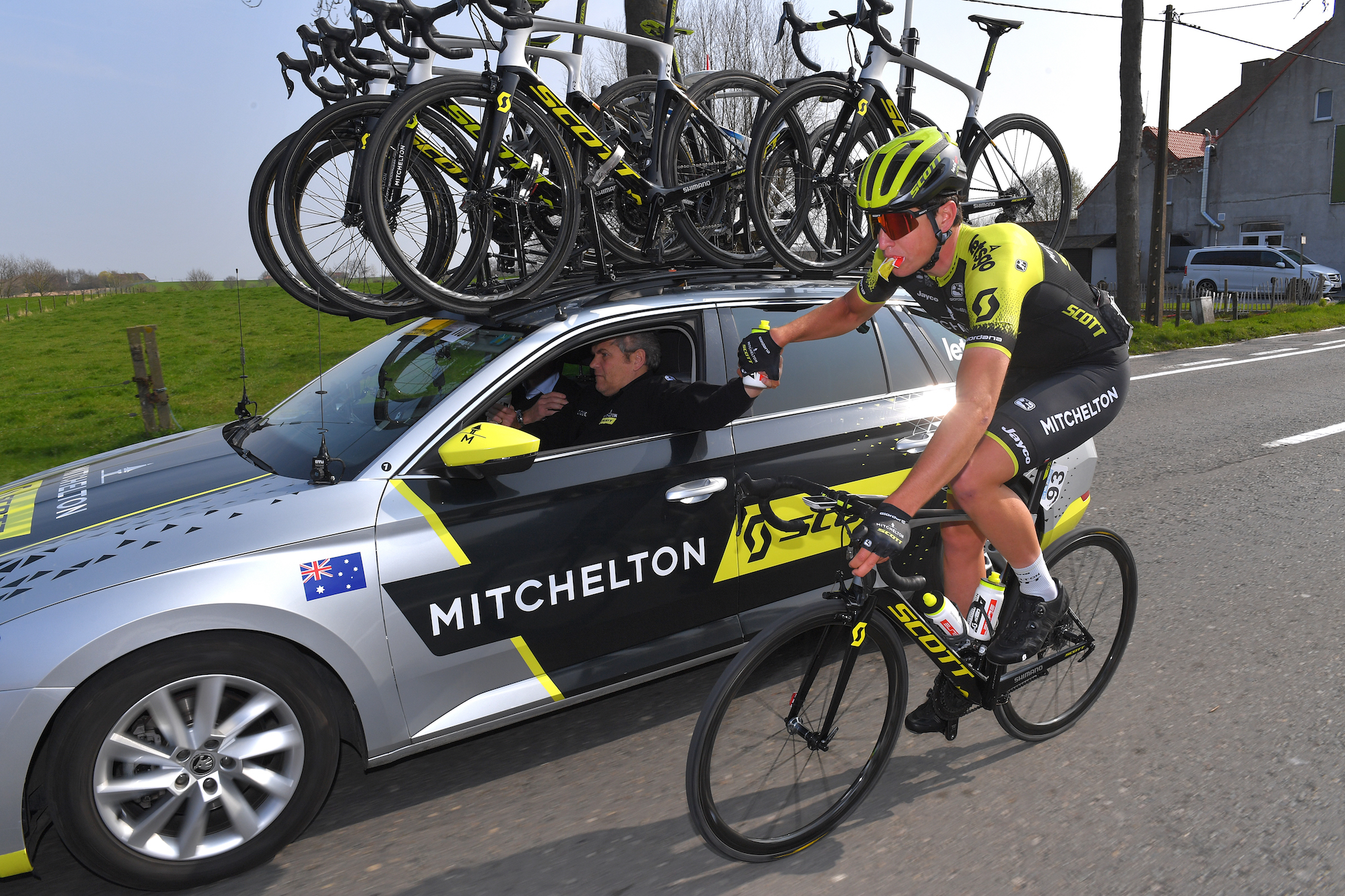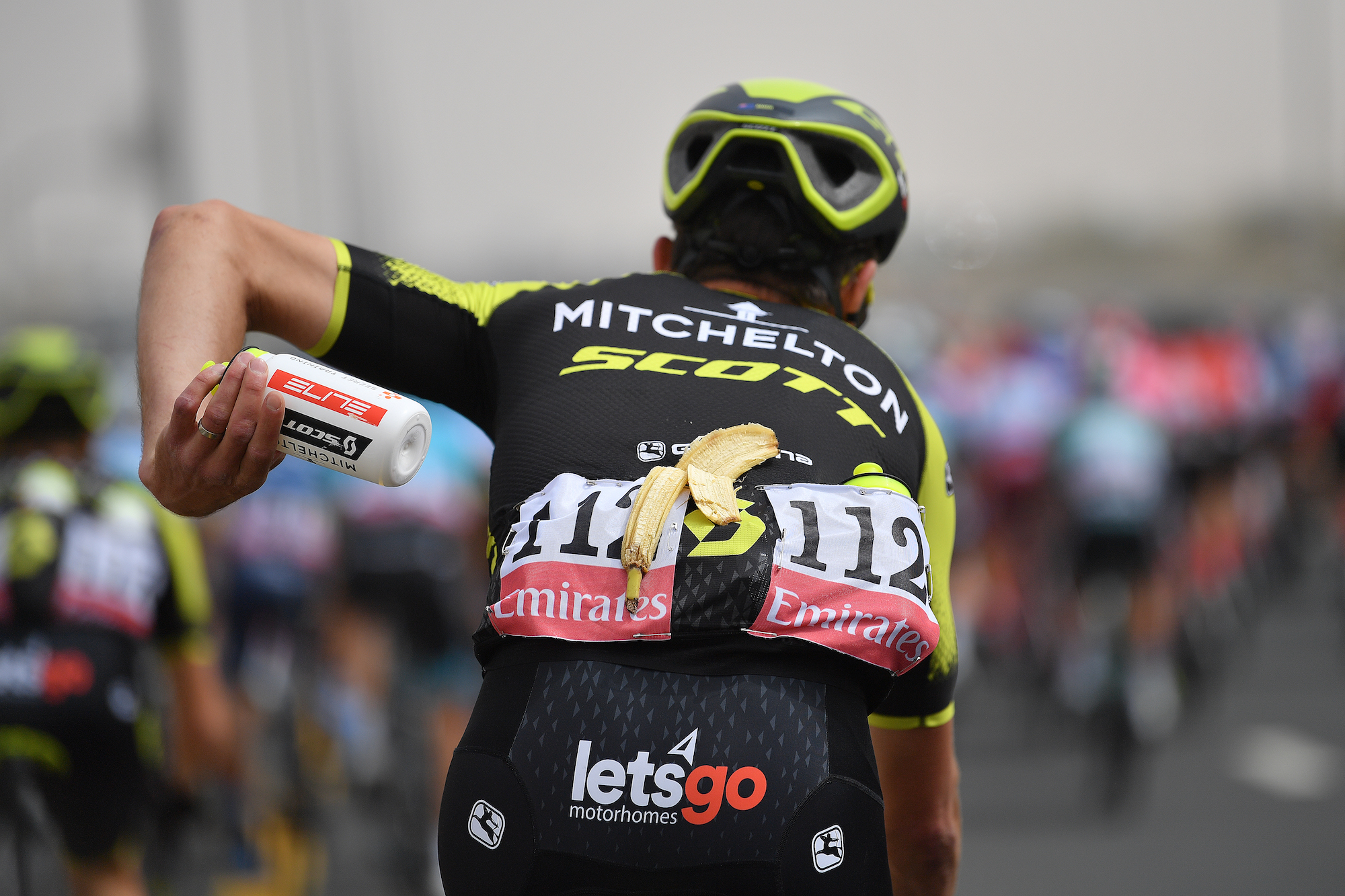Study shows effects of under fuelling among pro cyclists during Classics period
A lack of post-race carbohydrate intake may have contributed to inadequate fuelling


The latest race content, interviews, features, reviews and expert buying guides, direct to your inbox!
You are now subscribed
Your newsletter sign-up was successful
A study into the energy requirements and intake of six professional male cyclists over the course of a week long Classics campaign has highlighted the risks of under fuelling.
>>> Is sports science only telling half the story?
The study, due to be published in the International Journal of Sports Physiology and Performance found that riders who failed to match their calorie burn with adequate intake had significantly reduced levels of testosterone and insulin-like growth-factor-1 hormones.
Reduced rates of both hormones is associated with under-eating and elevated risk of' 'Relative Energy Deficit Syndrome' (Red-S), implications of which can include reduced bone density and increased chance of injury or illness.
Comparatively, riders who met a healthy energy balance saw increased levels of the hormones.
What were researchers looking for?

The scientists noted that whilst Grand Tour racers may vary nutrition between stages, the demands of three weeks of racing meant that "aggressive feeding" was often employed to minimise the chance of a calorie deficit
The latest race content, interviews, features, reviews and expert buying guides, direct to your inbox!
Comparatively, with the Classics being one-day efforts and often with a minimum of 40 hours of recovery between race days, they said "cyclists may risk a body mass gain if they overcompensate for race day energy expenditure on rest days."
To avoid weight gain, they said riders tend to periodise nutrition to "support performance on race days while preventing unwanted weight gain on rest days."
>>> Eat like you train: periodised nutrition explained
This popular method of 'fuelling for the work required' means upping carbohydrate intake in the lead up to a race, during it, and in the immediate window afterwards before increasing protein on rest days to support recovery whilst avoiding surplus calories.
However, the study suggests that if net calorie intake is insufficient, riders' health could be at risk.
What did researchers find?
Researchers collected calorie intake, power data, blood hormone levels and morning body mass from six Mitchelton-Scott riders across an eight day window, which consisted of four race days and four rest days.
It was noted that 11 riders were due to take part, but illness and injury dropped the sample size to just six, rendering this a pilot study.
The races, all taking place in Belgium in 2018, were Driedraagse de Panne (202.4 kilometres), E3 Harelbeke (206.1 km), Ghent-Wevelgem (250.8 km) and Dvaars door Vlaanderen (180.1 km).
Race day fuelling was measured from 7pm the night before an event, until 7pm the following day. The riders consumed an average of 6216 k/cal, whilst burning an average of 5184 k/cal during the race. This leaves a 1032 k/cal difference - less that the recommended requirement for your average male (2,000-2,000k/cal) and thus putting them in a calorie deficit.
Race day diet was made up of 10.7 grams per kilogram of body weight in carbs, and 2.8g/kg of protein.
Researchers noted that though pre-race carbohydrate intake was in-line with contemporary sports nutrition recommendation, post-race intake was "significantly less" than recommendations, whilst in-race carb intake was also "significantly less" than the recommended bottom value of the ideal range.
The nature of the Classics races, with their unpredictability and cobbled climbs, may have played a role in reduced intake during events.
On rest days, the riders burned on average 954k/cal during exercise but consumed on average 5050 k/cal - leaving a difference of 4096 k/cal and thus a surplus. On these days, carb intake was reduced right down to 6.4g/kg and protein increased to 3.3g/kg.
Did riders eat enough?

Energy availability is measured in calories per kilogram of fat free mass - kCal/kg FFM. Over 30kCal/kg FFM is considered low energy availability, resulting in a risk of Red-S.
All six riders were below the 30 mark on race day - the average being 14.4 kCal/kg FFM. However, on recovery days, they were all in excess, averaging average 57kCal/kg FFM.
Looking at an average over the eight-day window, half of the riders fell below the threshold, averaging 28 kCal/kg FFM. The other half had a mean intake in the 'moderate' range at 43 kCal/kg FFM.
Blood hormone level analysis revealed that the riders who were below the healthy threshold saw a drop in testosterone of 14 per cent and a 25 per cent drop in insulin-like growth-factor [IGF-1], both markers associated with under-eating and elevated risk of Red-S.
The riders above the healthy mark saw a seven and five per cent increase in the respective hormones.
The researchers concluded that "alternate-day low EA [energy availability] lead to a trend towards decreased testosterone IGF-1 after only 8 days, despite high EA on days in-between."
They also noted that thought the cyclists reached contemporary pre-race fuelling targets, "the execution of acute and prolonged post-race carbohydrate fuelling guidelines was poor and contributed to the reduction in EA on race days."
Michelle Arthurs-Brennan the Editor of Cycling Weekly website. An NCTJ qualified traditional journalist by trade, Michelle began her career working for local newspapers. She's worked within the cycling industry since 2012, and joined the Cycling Weekly team in 2017, having previously been Editor at Total Women's Cycling. Prior to welcoming her first daughter in 2022, Michelle raced on the road, track, and in time trials, and still rides as much as she can - albeit a fair proportion indoors, for now.
Michelle is on maternity leave from April 2025 until spring 2026.
